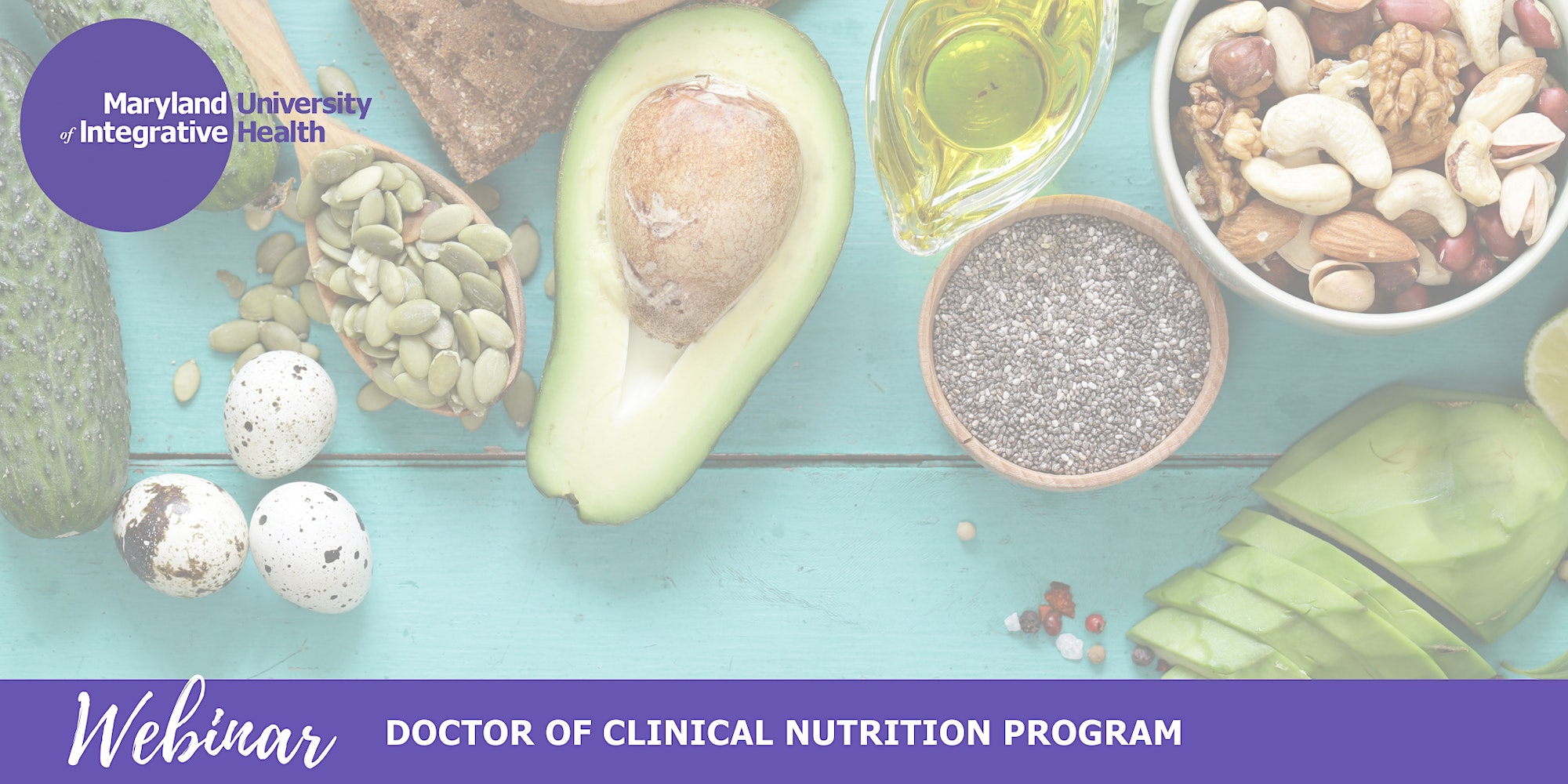At the Maryland University of Integrative Health, our Doctor of Clinical Nutrition (DCN) program is one of the only two doctoral programs in the country offering advanced training and education in integrative and functional nutrition. We encourage nutrition professionals and other clinicians who are interested in advancing their nutrition-related skills and knowledge to apply for a DCN. You’ll be inspired by what this advanced degree can do for your career and the communities you serve.
What is a Doctor of Clinical Nutrition?
A doctorate is an advanced degree that signifies a person has developed mastery in their given field of study. As a Doctor of Clinical Nutrition, graduates of the MUIH DCN program achieve the highest possible degree available in their field. Successful graduates are recognized as topic experts with enhanced credibility. Graduates will hold the title of doctor (Dr.), enhance their stature with clients and other healthcare professionals, and expand their job opportunities and career paths.
How can a doctorate advance my career?
A DCN provides a health professional with applied skills and cutting-edge knowledge in functional nutrition that can be used in clinical settings, academic settings, and research settings. This is a great way for CNSs, RDs, and other clinicians to contribute to the growing body of scientific literature related to nutrition, advance the field of nutrition as a whole, and help patients, organizations, and communities optimize health through the healing potential of food and root cause healthcare.
Professionals who have earned a DCN are able to:
- Provide advanced nutrition care that incorporates personalized, evidence-informed plans
- Serve as educators in higher education
- Serve as nutrition consultants for organizations, including government agencies and nonprofits
- Deliver clinical care in conventional and functional medicine practices
- Publish original research in peer-reviewed journals
Job Opportunities for Doctor of Clinical Nutrition
Earning a Doctor of Clinical Nutrition degree allows someone who is already working as a nutrition professional to advance in their career. As an expert within the field of integrative and functional nutrition, DCN graduates can find themselves making a contribution in a variety of settings, including:
- Schools and universities
- Healthcare systems, including hospitals and community clinics
- Private practices
- State, local, national, and international health departments
- School systems
- Athletic and recreational organizations, including professional sports teams
Because a DCN provides a professional with such a breadth of knowledge, many graduates are also able to offer their skills and expertise in a variety of positions. This provides individuals with greater flexibility and enhanced networking opportunities.
Doctor of Clinical Nutrition Salary
Given that a DCN provides such expansive career flexibility, the possible earning potential of a DCN is expansive, as well.
Nutrition professionals typically earn around $55,000 annually.. As an educator with a DCN degree, this salary can jump to $80,000 or more. In private practice, nutritionists with doctoral degrees can earn upwards of $100,000 to $200,000 a year.
The Path to Becoming a Doctor of Clinical Nutrition
The path to becoming a Doctor of Clinical Nutrition varies depending on where you begin your journey. At MUIH, we make it easy to help you get started and fulfill your admission and degree requirements.
Master’s Degree Pathway:
- Degree Requirement (one of the following):
- Master of Science or Doctoral degree in nutrition or a related field (including, but not limited to, Public Health, Health Science, Biochemistry, Nursing, and Physician’s Assistant).
- Doctoral degree in clinical healthcare (including, but not limited to, DC, DDS, OD, Doctor of Nursing, ND, and PharmD).
Degree must be from a degree-granting college or university accredited by an accrediting body recognized by the U.S. Department of Education, with a minimum of a 3.0 GPA, or if a school uses a Pass/Fail system, passing grades in all coursework.
- Coursework requirements (all of the following):
- Nutrition Science: 12 semester credit hours at the graduate level. Biochemistry: 6 semester hours at the undergraduate or graduate level.
- Physiology or Anatomy & Physiology: 3 semester hours at the undergraduate or graduate level.
- Clinical or Life Sciences: 12 semester hours at the undergraduate or graduate level.
- Behavioral Science: 3 semester hours at the undergraduate or graduate level.
Coursework must be from a degree-granting college or university accredited by an accrediting body recognized by the U.S. Department of Education.
Registered Dietitians (RDs) Pathway
Doctor of Clinical Nutrition Courses
MUIH offers a range of evidence-based, up-to-date courses that build on existing skills and knowledge in research literacy, ethics, and foundational nutrition. Expect to develop mastery in innovative topics such as:
- Immune, gastrointestinal, cardiovascular, endocrine, metabolic, and neurological systems as they relate to nutrition and lifestyle
- How to conduct a nutrition-focused physical exam
- Epigenetics and bioethics as it relates to nutrition
- Detoxification and energy metabolism
- Designing research and participating in academic journal writing
Conclusion
Never before has the role of nutrition been more important in improving both individual and community health. As leaders in their field, Doctors of Clinical Nutrition are able to expand the types of clients and cases they work with, including individuals with complex clinical conditions. DCN graduates help people identify the root causes of their disease symptoms, understand how their environment and lifestyle influence their well-being, and learn how a holistic and personalized approach to nutrition can optimize their quality of life. DCN graduatesare also able to advance the field of nutrition as a whole, both as researchers and as educational leaders who can guide future professionals into an exciting and growing career.
Contact MUIH today to learn more about our DCN program, apply now, or register for one of our Doctor of Clinical Nutrition Program Webinars!

